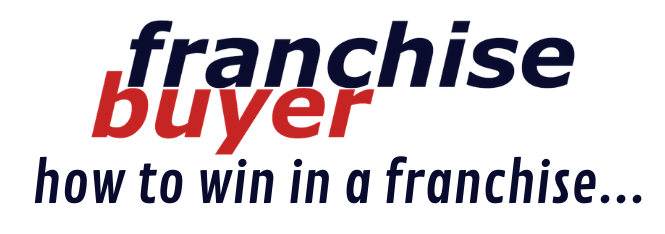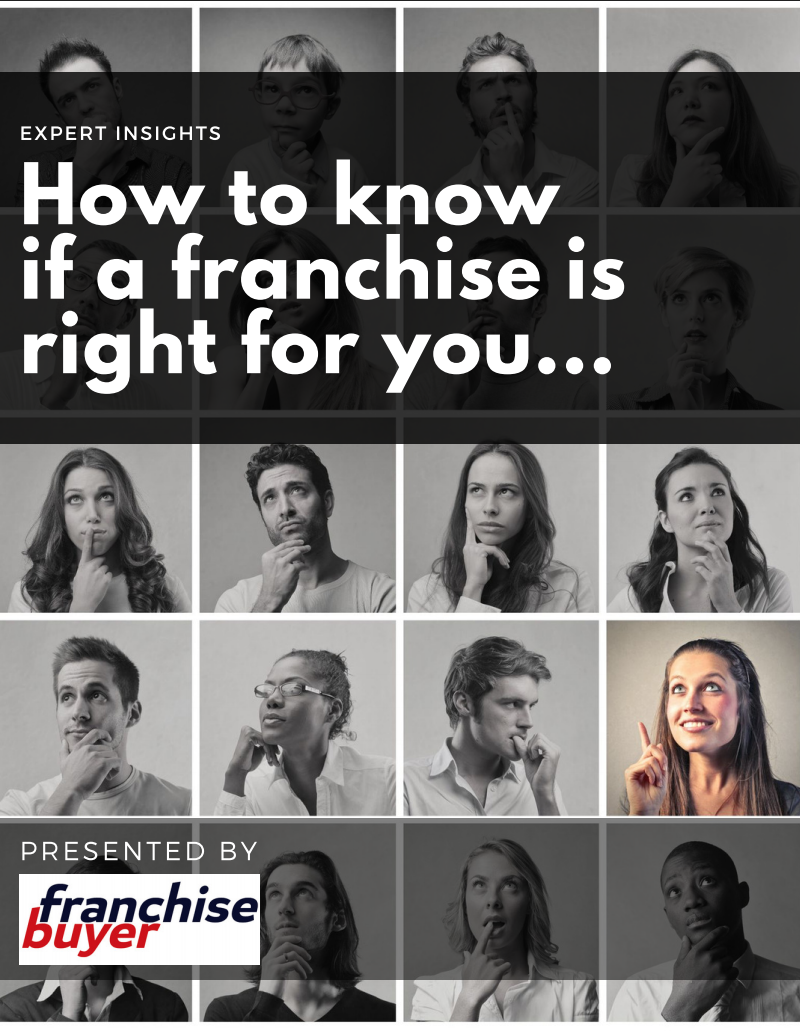March 22, 2019
An Aussie franchise executive abroad
To call Pat McMichael a veteran of the franchising business would be an understatement. In fact, what Pat doesn’t know about franchising after nearly 30 years in the game is probably not worth knowing.

He’s been a multi-unit franchisee with 10 stores.
He’s worked for pizza chain Domino’s in various roles including new concepts manager, international business consultant and chief franchise development officer Australia/New Zealand — and for Lenard’s Chicken as its national business development manager. He was chief operating officer for Retail Zoo/Boost Juice then became CEO for Domino’s Pizza Indonesia for two years.
You probably reckon that’s a pretty impressive CV, but it gets better. Constantly on the lookout for new markets to conquer, for the past year, Pat has been CEO
of Eat’n’Go, the master franchisor for Domino’s Pizza, Cold Stone Creamery and Pinkberry Frozen Yogurt in Nigeria.
Nigeria
Yes, Nigeria. On the face of it, not a market that immediately springs to mind when you’re talking about selling pizza slices and ice cream. Pat can put you straight on that particular misconception.

“After I finished in Indonesia, the position in Nigeria came up out of the blue, he says. “I wasn’t interested in travelling again, but they said they’d like to have a conversation and out of courtesy I agreed. I did some research and realised there were huge opportunities in Nigeria for a franchise business — a huge population and commercial advantages to grow a business.”
After six years in Nigeria, Eat’n’Go now has 88 stores, more than 2000 employees and already dominates the quick service restaurant sector in the country. With outlets in Lagos, the country’s largest city, the capital Abuja and various regional centres such as Port Harcourt, Eat’n’Go is progressing from strength to strength. Despite his research, when he took over the CEO role, Pat was still surprised at the momentum — and the potential.

“It was interesting coming into the market here where we are the largest operator,” he says. “There’s nobody else here — no McDonald’s, Burger King or Subway —which is great for us. People are rightfully wary of doing business in Nigeria, it’s not easy, but we’ve become good at it and the reputation of the company is actually far bigger than the company itself. We get emails from all over Nigeria asking when we’re going to put a shop in their area. To give you an idea of the potential market, a regional city in Australia, like Dubbo, has 40,000 people. A regional city in Nigeria has over a million.”
Pat has frequently been quoted as saying that doing business in Africa is difficult, but Nigeria is another step and if you want to succeed here you have to be really good at what you do and understand the market you’re in. “Most people in Australia and the Western developed world wouldn’t understand, but Nigeria is the hardest place in the world to sell a slice of pizza, an ice cream or a cup of frozen yogurt,”
Pat says. “Our business is very complicated so we control our product and the customer experience from end to end. We import the product and store it in our own warehouses. Then we transport it to various locations around the country, to our local suppliers, and from those distribution points out to our stores — then to our customer across the counter.”
A unique investment in infrastructure
Each successful store requires a unique investment in infrastructure before those pizza slices, ice creams and frozen yogurts can start marching out the door.


It’s not a matter of finding suitable premises — rather each store is built from the ground up to cope with such factors such as irregular or non-existent water and power supply, and the need for good security.
“Every time we build a store we have to put a bore into the ground to get our water out,” says Pat. “We put in filtration and a sewage treatment facility with septic tanks. Every store is enclosed in its own compound — with security gates and 24-hour guards. There are generators to power the oven and refrigeration, with diesel and liquid gas tanks. We can run off-grid for up to two weeks. Even if Lagos stops working, our pizza stores will still be running.”
A gourmet experience
Apparently, selling food products completely alien to the traditional West African diet has not proved anywhere near as difficult.
“Ice cream they knew,” says Pat. “It is a very popular product and seen as a gourmet experience. Our Cold Stone franchise is now no.1 in the world, with the highest-volume sales. On the other hand, pizza and frozen yogurt were relatively unknown. Introducing a Western product is a challenge and you’ve got to be able to produce one affordable to a community with a low average wage. That said, there is a middle class with a greater disposable income. Just this week we launched a new ‘smallie’ pizza — it comes in at about $1.60 — and those things are flying out of the ovens. I saw an order yesterday with 100 pizzas going out to one customer!”
The long haul
Eat’n’Go sources as much as possible locally, Pat says. “From the start, we wanted to buy local and spend the money in Nigeria. Currently we source about 65 per cent of our products and ingredients locally. It’s good for the brand, it helps the brand image stay strong, and protects us a little from overseas currency fluctuations.”
This is all part of Eat’n’Go’s stated intention of investing in Nigeria for the long haul.


To this end, the business — 100 per cent company operated with no plans to start franchising — has big plans for expansion and development.
“Our business plan involves setting up more than 300 stores over the next five years and expanding to 8000 staff, says Pat. “The potential is huge — there are nearly 200 million people in Nigeria, it’s the powerhouse of Africa. I’ve got three manufacturing facilities under construction right now and a warehouse just about to open, which I’ve recently leased. I’ve got trucks coming in to move our stock around because right now I’ve got seven stores under construction; and another seven we’re working on getting all the necessary permissions. There are just so many moving parts to the business you’ve got to stay on top of it all the time. I don’t want to be too forthcoming about our turnover, but I would say that our customer counts (number of customers) are as good or better in many instances than the Australian Domino’s, which is a world-class business.”
Team selection
Of course, with this rate of growth, team selection is critical and the company shows it has faith in its employees by operating a policy of only promoting from within. One of the core philosophies is: ‘Educate and pay people properly’.
“I’ve got a really strong team — a full development team, a project team, and operations teams for each of the brands,” says Pat. “There are about 15 expats in the overall operation, but we rely on our local people and have a strong promotions policy. For example, 100th store opening celebrations in Indonesia coming into the business I promoted two of our operations people into managerial roles, which was good for our staff overall.

They can now see there’s a career here; that if you’re really good at what you do, you can grow with the business.”
Adjusting for a different culture
Pat reckons that the sooner you realise you’re operating in a completely different culture, the better. “Having been here for almost a year, it’s been a steep learning curve. When you’re operating a franchise in the Western world, the culture is very similar in a lot of countries, but when you come over here you have to adjust to a very different way of doing things. We’re lucky in that we work closely with the federal and state governments and are treated well. We employ people across the country and give back to the community through a primary school program — this year we’re sponsoring 1000 kids into school. We try to get involved with everything we can and the government is really supportive.”
His stint as CEO of Domino’s Pizza Indonesia proved a good introduction to life in Lagos, which in some respects he reckons is easier than in Jakarta.
“My experience in Indonesia was the perfect apprenticeship for Nigeria,” says Pat. “It allowed me to work in a developing country, to understand a foreign culture and how a very different system worked. But very few people spoke English — Bahasa was the language — so to do business I had to rely a lot on translators, which made things difficult. In Nigeria, there are many dialects, but English is the common language. And as a result of its previous place in the Commonwealth, it means I can understand the law here — it has many similarities to Australian law. There are a number of franchise operations over here and they operate very similarly to Australia.”
One thing that did take a whole lot of getting used to was the constant need for a security awareness in a country with a well- deserved reputation for being a risky place for expats to work.

“That environment is the way things work and you have to work around it,” says Pat. It’s a world of extremes — I’m not scared of it, but I’m smart and don’t put myself in potentially dangerous situations. So when I go down to Port Harcourt, a potential hot spot, I have armed security in a lead car. I take advice — I don’t get out of the car in areas that may be problematic. Because I stand out — among almost 200 million Nigerian people, I’m the tall white guy.”
Getting involved
Pat is a big believer in getting out and getting involved in his business.
“We’ve marked out where the best locations are for new shops. It’s a big task and we’re going all over the country to do it. There are some places I won’t visit because they’re unsafe for me. So a local team will handle that. The places I do visit, the locals are often really surprised to see me. But that’s part of being over here. You’ve got to get out of the office and into the stores because that’s where the rubber meets the road. It’s the same in any franchise.”
Getting out and about, Pat has found that a smile and a handshake can work wonders in defusing potential hostility. “I just smile, say ‘hello, how are you going?’ and I don’t seem like the privileged white guy anymore,” says Pat. “I’ve got a sign on the wall of my office saying: ‘I don’t care about your money, your title or your position. The only thing I care about is how you treat people’. Just respect the culture and be nice to people. I value you as a person, for what you can contribute, for what you can bring to my day. And, of course, I want to sell you pizza!”
Up for the challenge
Pat reckons his vast experience in so many facets of the franchising game is one of the strongest things in his favour when it comes to running a company.

“I’ve been with several successful companies and learned an incredible amount along the way,” he says. “Not only have I come up through the system —driver, trainee manager, store manager — but I was also a franchise owner, won Franchisee of the Year twice, so I can guide a company through its growing pains. A lot of people think you just walk into a franchise and it’s a licence to print money, but being a franchisee is hard work. It means being involved in your business. No couch potato franchisee was ever successful.”
Spending regular four-week stints away from home and family is a tough price to pay, but Pat is committed to the challenge. “I spend four weeks in Nigeria, then 10 days at home. Any more and I risk losing focus at the rate we’re expanding with the big projects we’ve got running. My wife is really supportive of my career and knows in the long term we’ll reap the benefits of all this hard work. The good thing about technology is that I can speak to my kids all the time. They know where I am and what I’m doing at the end of the day. I also have a hell of a lot of air miles to cash in on family holidays, so there are some benefits!”
Fully up for the challenge of growing a successful business in a market environment many companies would steer clear of, Pat has already overcome challenges far bigger than the ones he faces in Nigeria. Having already survived cancer and a car crash, in 2016 he suffered serious spinal damage wake boarding in Indonesia.
“I was jumping the wake and landed on my neck. The next day I noticed my hand was numb, then my whole arm.
My vertebrae had been pushed against my spinal cord, pinching the nerves. They removed three levels of vertebrae and disc, put my hipbone in my neck and a titanium plate in the front. But 12 weeks after they put my neck back together, I ran the Gold Coast Marathon. I won’t be stopped.”















